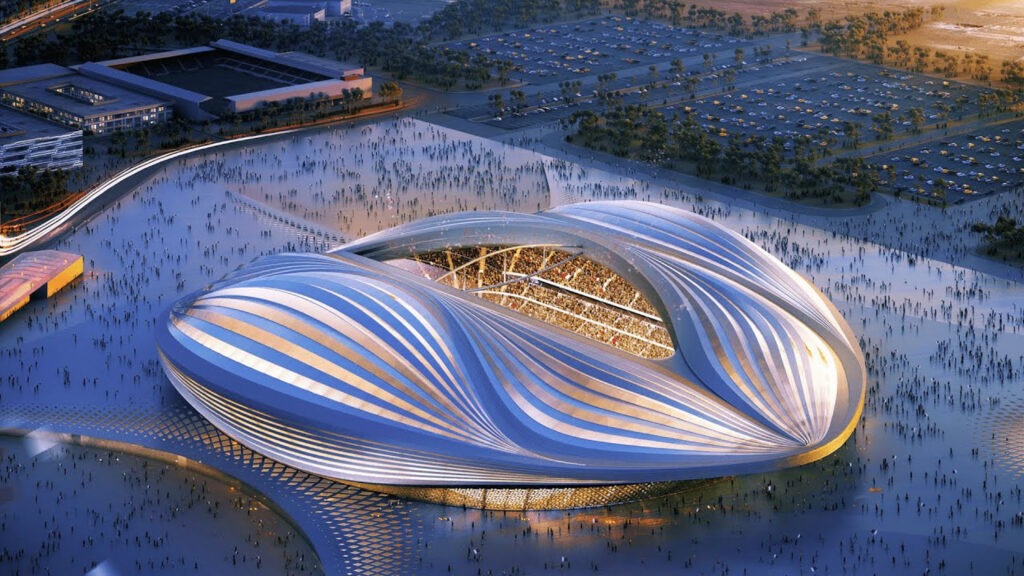
Under Fifa Vision Report 2021, Goal 5: deliver sustainable tournaments, FIFA states that their “vision is to make football truly global, diverse and inclusive, for the benefit of the entire world”. That is, ‘the benefit of the entire world*’ except for the migrant workers effectively enslaved for the purpose of construction, women discriminated under the male guardianship law and the entire LGBTQIA+ community who face imprisonment and even the death penalty in Qatar. If FIFA had its way, everyone would merrily be watching soccer and casually ignoring the 6500 migrant worker deaths over the past decade. The imbalanced power dynamic between Qatari government and immigrant workers, women and their male guardians and the laws banning campaigning for LGBTQIA+ rights have led many brands to create anti-campaigns to spread awareness of the Qatar human rights abuse.
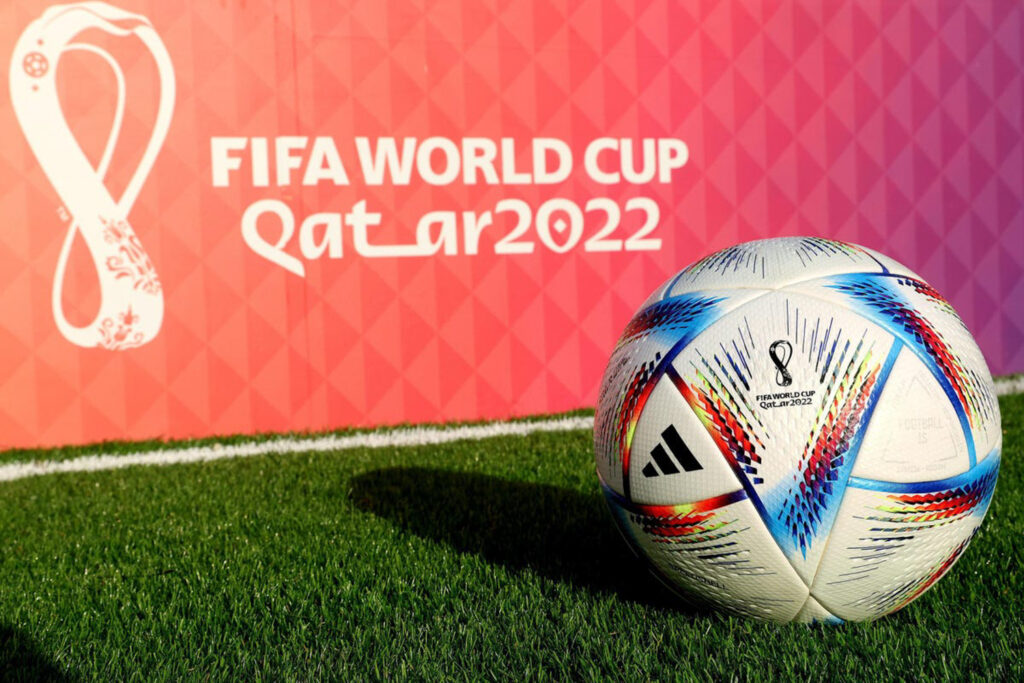
Being one of the world’s largest sporting events with a record 3.572 billion people tuning into the 2018 FIFA World Cup Russia, brands are salivating over the opportunity to sponsor or partner with the event. FIFA’s main partners for this year are Adidas, Coca-Cola, Hyundai-Kia, QatarEnergy, Qatar Airways and Visa. These brands have chosen not to speak up about the controversy surrounding the event, signalling a compliance with the Qatar human rights abuse taking place. Brand perceptions can worsen if brands align themselves with controversial events. They purchase the rights to sponsor the World Cup because they want to be associated with the triumphs and wins of the event, not with the migrant worker abuse and condoned discrimination the event has since become synonymous with. Partnerships should reflect brand values, and the refusal to even speak out about the event means that brands are walking in a marketing minefield. There is a silver lining to this, and that is that brands have the opportunity to make a difference as a sponsor internally. Bloomberg News contacted 76 companies sponsoring either the tournament itself or the teams taking part. None of the seven FIFA sponsors said they would make any changes to their global advertising plans to reflect concerns for human rights, although Adidas, Budweiser, Coca-Cola and McDonald’s did release bland statements about supporting remediation for migrant workers and working with human rights organisations.
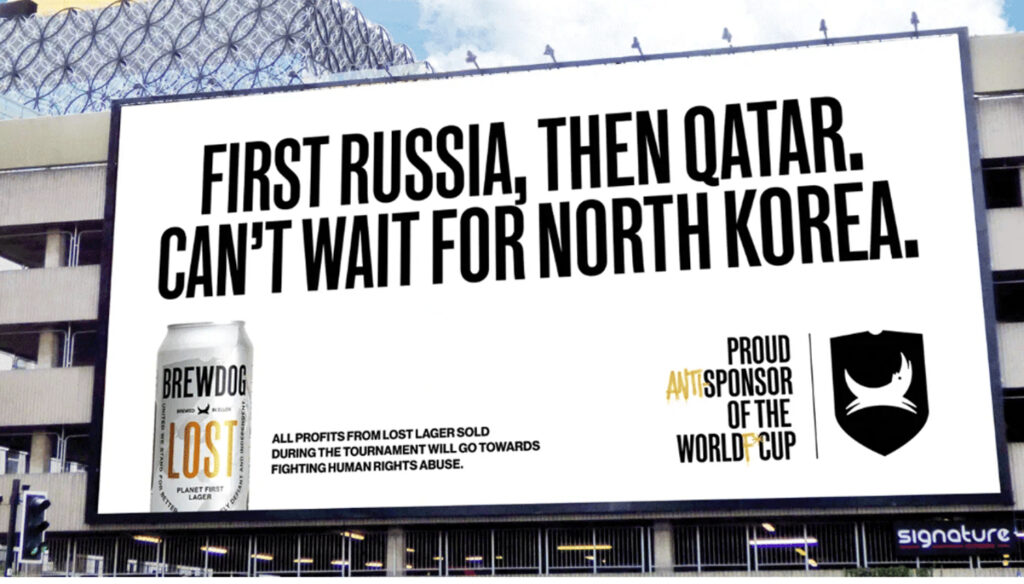
Many brands still try to participate in the World Cup without the hefty sponsorship price tag through ambush marketing. BrewDog released an aggressive ‘anti-World Cup campaign’ that has since been criticised as virtue signalling. The campaign, created by Saatchi & Saatchi, included loud billboards with copy including, ‘Proud anti-sponsor of the World F*Cup,’ ‘The Beautiful Shame,’ ‘Eat, Sleep, Bribe, Football’ and ‘First Russia, then Qatar. Can’t wait for North Korea.’. Despite the vocal stance, they were found to still be selling beer in Qatar and in their chain of bars around the world they were streaming the World Cup. As part of their campaign, profits from the Lost Lager beer would be donated to Qatar human rights organisations throughout the World Cup to support migrant workers. Yet BrewDog were accused of hypocrisy due to former and current workers calling out CEO James Watt for his “culture of fear” that led to workers demanding an apology for “harassing, assaulting, belittling, insulting, and gaslighting”. The entire campaign comes across as performative and opportunistic, and it highlights the importance of creating campaigns that align with a brand’s image. The problem with this campaign is that it uses migrant worker abuse as a reason to buy BrewDog beer, and it feels disingenuous overall.
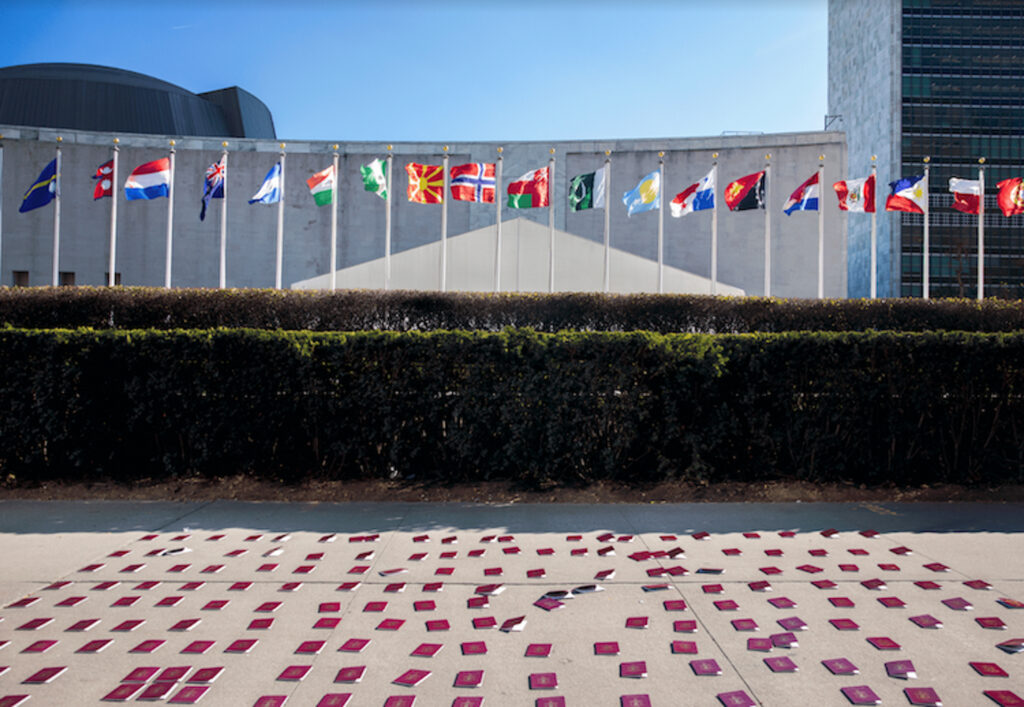
An example of a holistic campaign that highlights the Qatar human rights issues is ‘The Slavery Cup’ campaign by advertising agency Mojo Supermarket. They staged a public protest by casting projections onto the United Nations’ and FIFA’s office, where thousands of people read the message “FIFA – Proud Sponsors of The Slavery Cup.” They also distributed thousands of passports in New York and London. The passports included the name, image and story of eleven migrant workers who died building the stadium - and its symbolic of the Kafala system that is rife in Qatar. Migrant workers’ passports are confiscated and they are effectively forced to work for low pay in harsh conditions. They are barred from leaving the country or changing employers. The website, www.theslaverycup.com, provides a hub where people can learn about the migrant workers and donate to organisations that provide aid. The entire campaign is sincere, especially considering that Mo Said, founder of Mojo Supermarket, is a Pakistani that was born in Dubai to a migrant worker. As an advertising studio, the campaign is in line with their services and it effectively creates awareness of the issue without exploiting the migrant workers for sales.
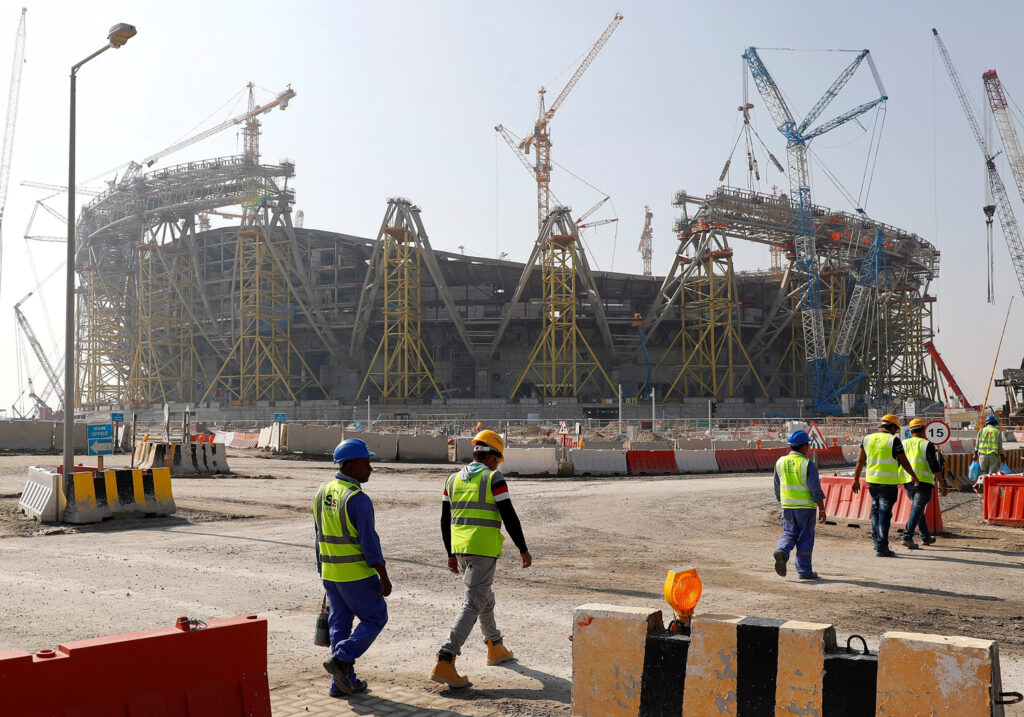
Every four years a new article asking “is FIFA’s brand damaged?” is published. And yet every World Cup comes and goes, and people forget about the problems of the previous cup. FIFA claimed that the World Cup would shine a spotlight on the issues and make it better for disadvantaged groups in Qatar. But it hasn’t done that at all - in fact, it’s achieved the exact opposite. Brands have an opportunity to create tangible change, and consumers nowadays expect brands to speak out against social injustices - but there is a fine line between performative activism and genuine change.
